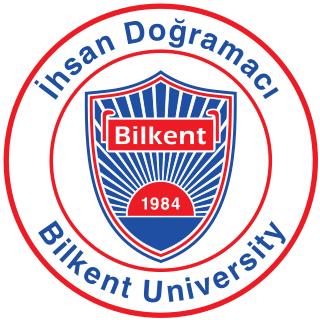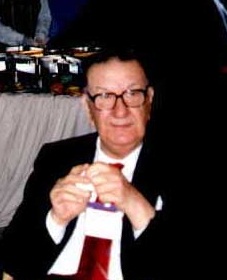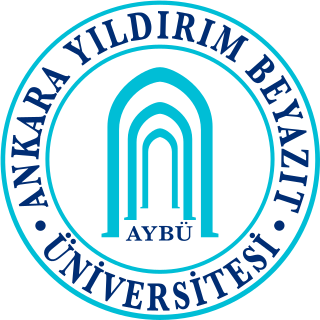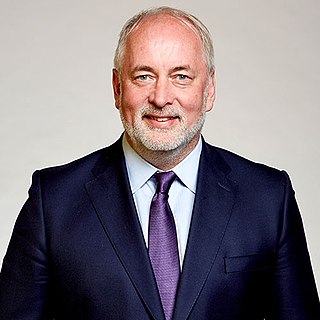
Middle East Technical University is a public technical university located in Ankara, Turkey. The university focuses on research and education in engineering, natural sciences and social sciences, offering 41 undergraduate programs across five faculties and 105 master's and 70 doctoral programs through five graduate schools. The main campus of METU spans an area of 11,100 acres (4,500 ha), comprising, in addition to academic and auxiliary facilities, a forest area of 7,500 acres (3,000 ha), and the natural Lake Eymir. METU has more than 120,000 alumni worldwide. The official language of instruction at METU is English.

Bilkent University is a non-profit private research university located in Ankara, Turkey. It was founded by İhsan Doğramacı, the first president of the Council of Higher Education and the head of the prominent Doğramacı family, with the aim of creating a center of excellence in higher education and research in 1984. It has constantly been ranked among the top Turkish universities since its establishment. In 2011, it was ranked 112th in the world by The World University Rankings. Bilkent University was modeled after Harvard University and was the first non-profit private university established in the country. The name Bilkent is an abbreviation of bilim kenti, meaning "city of science" in Turkish.

Orkut Büyükkökten is a Turkish software engineer who developed the social networking services Club Nexus, inCircle and Orkut. He is a former product manager at Google.
Michael Irwin Jordan is an American scientist, professor at the University of California, Berkeley, research scientist at the Inria Paris, and researcher in machine learning, statistics, and artificial intelligence.
Jerry R. Hobbs is an American researcher in the fields of computational linguistics, discourse analysis, and artificial intelligence.
Ekmel Özbay is a Turkish professor of Electrical and Electronics Engineering and Physics Departments at Bilkent University and the director of the Nanotechnology Research Center, and Space Technologies Research Center (BILUZAY) in Ankara.

Zoubin Ghahramani FRS is a British-Iranian researcher and Professor of Information Engineering at the University of Cambridge. He holds joint appointments at University College London and the Alan Turing Institute. and has been a Fellow of St John's College, Cambridge since 2009. He was Associate Research Professor at Carnegie Mellon University School of Computer Science from 2003 to 2012. He was also the Chief Scientist of Uber from 2016 until 2020. He joined Google Brain in 2020 as senior research director. He is also Deputy Director of the Leverhulme Centre for the Future of Intelligence.

İhsan Doğramacı was a Turkish paediatrician, entrepreneur, philanthropist, educationalist and college administrator of Iraqi Turkmen descent born in modern Erbil, Kurdistan Region, Iraq then Ottoman Empire.

Yorick Alexander Wilks FBCS was a British computer scientist. He was an emeritus professor of artificial intelligence at the University of Sheffield, visiting professor of artificial intelligence at Gresham College, senior research fellow at the Oxford Internet Institute, senior scientist at the Florida Institute for Human and Machine Cognition, and a member of the Epiphany Philosophers.

Hilmi Volkan Demir is a Turkish scientist, best known for his works on white light generation.

Mustafa Pultar is a Turkish academic who is a scholar of building science. He did graduate studies at Princeton University, then taught at Middle East Technical University (METU), and later at Bilkent University where he still teaches one graduate course each semester. A former director of the Building Research Institute of the Scientific and Technological Research Council of Turkey (TÜBİTAK), he was also the founding director of Bilkent University Preparatory School (BUPS). In recent years, he also wrote on the sea.

Levent Gürel is a Turkish scientist and electrical engineer. He was the director of Computational Electromagnetics Research Center (BiLCEM) and a professor in the Department of Electrical and Electronics Engineering at the Bilkent University, Turkey until November 2014. Currently, he is serving as an adjunct professor at the University of Illinois Urbana-Champaign, Department of Electrical and Computer Engineering. He is also serving as the founder and CEO of ABAKUS Computing Technologies.

Ankara Yıldırım Beyazıt University is a university located in Ankara, Turkey. It was established in 2010.

Nicholas Robert Jennings is a British computer scientist who was appointed Vice-Chancellor and President of Loughborough University in 2021. He was previously the Vice-Provost for Research and Enterprise at Imperial College London, the UK's first Regius Professor of Computer Science, and the inaugural Chief Scientific Adviser to the UK Government on National Security. His research covers the areas of AI, autonomous systems, agent-based computing and cybersecurity.
Ponnuthurai Nagaratnam Suganthan is a computer science academic from KINDI Center for Computing Research, Qatar University. He was named Fellow of the Institute of Electrical and Electronics Engineers (IEEE) in 2015 for "contributions to optimization using evolutionary and swarm algorithms".
Özgur Baris Akan is a Professor with the Department of Electrical and Electronics Engineering and the Director of Next-generation and Wireless Communications Laboratory (NWCL) at the University of Cambridge and Koç University in Istanbul, Turkey. He was named Fellow of the Institute of Electrical and Electronics Engineers (IEEE) in 2016 for contributions to wireless sensor networks. Since the same year, he is also a fellow of the Vehicular Technology Society.
Alper Demir is a Professor of Electrical Engineering at Koç University in Istanbul, Turkey. He was named a Fellow of the Institute of Electrical and Electronics Engineers (IEEE) in 2012 for his contributions to stochastic modeling and analysis of phase noise.

Hatice Altug is a Turkish physicist and professor in the Bioengineering Department and head of the Bio-nanophotonic Systems laboratory at École Polytechnique Fédérale de Lausanne (EPFL), in Switzerland. Her research focuses on nanophotonics for biosensing and surface enhanced spectroscopy, integration with microfluidics and nanofabrication, to obtain high sensitivity, label-free characterization of biological material. She has developed low-cost biosensor allowing the identification of viruses such as Ebola that can work in difficult settings and therefore particularly useful in case of pandemics.

Melih Onuş was a Turkish mathematician, computer engineer and scientist. He represented Turkey in 1998 and 1999, at the International Mathematical Olympiad and was awarded a bronze and a silver medal, respectively. He died in the COVID-19 pandemic.
Ahmet Celal Cem Say is a Turkish theoretical computer scientist and professor of computer science. He is a full time professor at the Boğaziçi University Department of Computer Engineering in Istanbul, Turkey. Cem Say is the author of the QSI algorithm for qualitative system identification, an AI task relevant in the study of qualitative reasoning. His work in complexity theory includes studies on small-space quantum finite-state machines and new characterizations of the complexity classes NL and P in terms of verifiers modeled by finite-state machines allowed to use only a fixed number of random bits. He is also known for his advocacy of people wrongly accused with forged digital evidence, and his popular science books.












